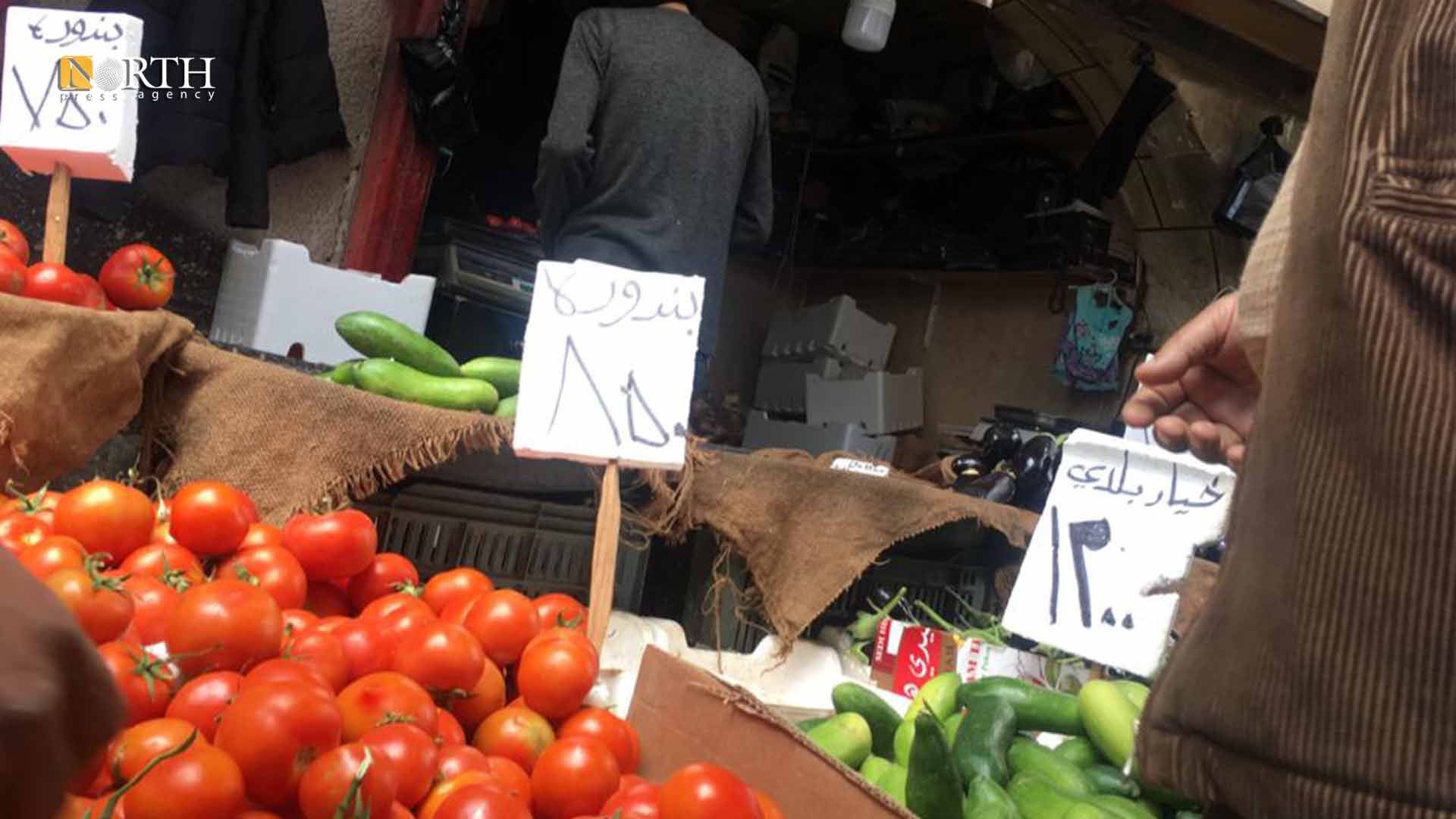Merchants in Syria’s Damascus fear penalties of new Consumer Protection Law
DAMASCUS, Syria (North Press) – Different positions were issued by merchants in Damascus after the issuance of the decree on consumer protection, as some merchants expressed their fear of an upcoming shortage of materials due to the inability to work in light of the threat of penalties and imprisonment.
On April 12, Syrian President Bashar Assad issued a decree to protect consumers, control prices, and prevent fraud and monopoly that contains a tight set of controls and penalties to prevent fraud and price manipulation.
In a practical step, Damascus merchants held a session that they devoted to discuss the merits of the law in the Chamber of Commerce after the decree was issued on April 12.
In order to avoid criticizing the decree signed by the president, all the declarations or positions that were announced emphasized their respect for the signature of “the master of the homeland” and directed criticism and requests to the Minister of Internal Trade.
A voice record
In a voice recording attributed to one of the merchants of Damascus, he stressed that he speaks in the name of all industrialists and merchants and said that “the high prices are not the merchants’ responsibility, but are caused by the war, and the circumstances are pressing for everyone, but only the trader is accused.”
The merchant, who spoke via voice recording without disclosing his name, added, “The exceptional circumstances require exceptional decisions and not irregular decisions, such as the decision of imprisonment of up to 7 years.”
Syrian presidential accounts said that Decree No. 8 of 2021 contains broad and tough sanctions that ensure trade market movement, making price manipulation or fraud a crime which requires lengthy imprisonment and a fine.
The merchant pointed out that what the merchants and industrialists were exposed to in this war is not a simple matter. “Their warehouses were stolen, they lost millions, industrialists abandoned their industries and factories, and the factories were stolen.”
He said, “Rather, they lived through all the conditions of war, including the death of some, kidnapping, and kidnapping of children for ransom.”
He stressed that they lost large sums of money by fraud because there are no regular transfers due to the blockade on the country, that the transfer costs reach 30-50%, and the shipping fees are very high.
“Instead of a million, the costs of transport by ship reach three million dollars. When it comes to pricing the material, they say in the Ministry of Internal Trade that the cost of this material is such and such, as they do not acknowledge all the costs that we suffer.”
These are not all the problems that the merchant talked about; there is the problem of fuel shortages, as the industrialist may incur costs of up to 12 million pounds per month.
“Electricity is also absent in some factories; all of these are not added to the costs by the ministry and they consider us liars,” according to the voice recording attributed to the trader.
Customs officers blackmail the merchant or industrialist with large numbers and charge large sums for each transaction, in addition to the big amount they pay on large seizures.
“All of these costs and others are not recognized; in fact, they are discredited and described as thieves, and the law places them with terrorists, thieves, and exploiters in prisons,” the merchant added.
A Letter
Others sent a letter to the Minister of Internal Trade and Consumer Protection stating the decree places the merchant between two options: either selling at a loss, or entering prison.
They called on the Minister of Internal Trade, Talal Barazi, to reconsider in a clear and rapid way the mechanism of pricing, commercial movement, and how to deal with the President’s Decree.
The letter addressed to the Minister of Internal Trade also includes that if the goal is to protect citizens, then the merchant and importer are also Syrian citizens and consumers.
They stressed in the letter that the consumer protection patrols have become a nightmare for commercial activities.
The decree granted the ration officer of these patrols the authority to arrest the violator and refer them to the judiciary.
The letter concluded with a set of demands in the name of all Syrian commercial activities, the most important of which are “Reconsidering the pricing, the mechanism for implementing the decree, and stopping the patrols of consumer protection.”
They also demanded the ministry not leave the decision to imprison an economically efficient trader in the hands of the Consumer Protection Monitor, and to have a delegate from the Chambers of Commerce and Industry with the patrol.
Soft decisions
Industrialist Issam Tizini asked on his page about the reasons for insisting on the rough approach, saying that “an iron fist does not save or develop any economy.”
Tizini added that improving people’s purchasing ability is not done by intimidating merchants and industrialists and threatening them with imprisonment.
He pointed out that “prices drop when you issue soft decisions that stimulate competition, encourage people to work and trade, and horizontally expand the base of producers, importers and traders.”
For or against
During these events, there were opinions supporting the strictness contained in the law, and Muhammad Jabali, head of the Syrian Economic Group, also published a letter to Damascus merchants asking them to reduce prices as long as the dollar exchange rate decreased.
There were those who demanded the punishment of merchants violating the decree, and there were those who wondered why the prices of the Syrian Foundation for Trade had not decreased so as to serve as an example for other traders.
Others believed that the markets were witnessing general chaos and that control was necessary, even if it was severe.

